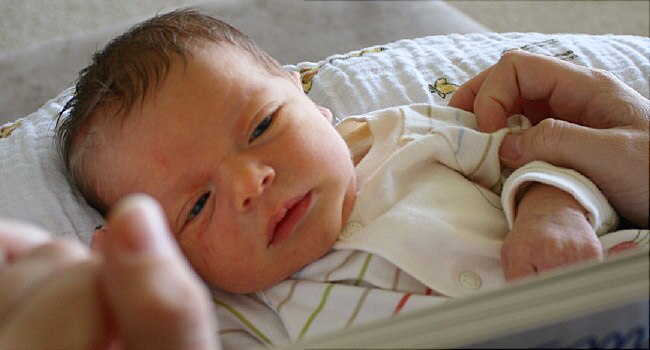By Gavin Mackintosh And Sheila Mckenzie
Babies born in Birmingham die at twice the national rate, making it one of the most doomed places in the UK for having children.
A total of 336 children died in the city before they reached their first birthdays between 2017 and 2019, according to new Public Health England data.
Disturbing new figures reveal that Birmingham also had among the worst rate of deaths when taking into account population, with 7.0 per 1,000 babies born dying, significantly higher than the national average of 3.9 per 1,000.
Birmingham has ranked among the worst for infant deaths consistently since the 2013/15 period, and has only been beaten by Stoke-on-Trent and Sandwell with 7.5 and 7.1 per 1,000 respectively.
The disastrous rate of infant mortality has been exceedingly high for years, with too little done to address the root causes and act with urgency, according to the damning findings of a new citywide investigation.
The finding has led to a taskforce of experts being set up to confront the issues after years of inaction going back ‘too many years’.
Deprivation, poor diet, unhealthy housing, lifestyle and smoking were all factors contributing to seven infants dying for every 1,000 live births – or around 125 deaths a year out of the city’s 18,000 births. The national rate is 3.9.
One in five of the deaths locally involved babies born to consanguineous couples – those that are related as second cousins or closer, according to the findings of the inquiry.
The other four in 5 died for a host of unspecified reasons. Not all reasons for baby deaths have been ascertainable, and causes of baby deaths are wide and varied.
Researchers examining the sad state of affairs believe there incest and consanguineous couples account for most of the deaths, with many parents concealing vital information when questioned in an attempt to establish as much facts as possible.
Effectively addressing then problem may require educating or even establishing laws prohibiting couples who are closely related from giving birth, reporters from The Birmingham Mail who broke the story, and brought it to the attention of The Eye Of Media.Com said.
The inquiry also found that families of Pakistani and Black African ethnicity are worst affected by the tragedy of baby loss, the inquiry also confirmed.
There are more families from Pakistani and some African backgrounds who marry within their extended families for cultural reasons, but evidence suggests this can be dangerous, with serious implications for some of their offspring.
Government policy may particularly be needed in this area to redress the very dangerous trend in baby deaths in Birmingham.
Poor Health And Living Conditions
Poor health and living conditions are among other potential reasons which have been provided as explanations for the high death rate of babies, but other parts of the UK which also suffer from poor living conditions do not have those statistics.
The figure this year is a decrease from the figure for 2015/17, which stood at 7.8 per 1,000.
Around 5.5 babies per 1,000 were stillborn in the 2017/19 period, over 25 per cent worse than the national average of 4.0.
However, the situation improved from the 2015/17 period when 6.0 per 1,000 deaths were recorded.
A total of 7,434 children died before their first birthdays across England from 2017 to 2019.
This is a drop from the 7,734 recorded in 2015/17, but as the total number of births decreased similarly during this time, the rate per 1,000 infants did not change.
However, the rate of change over the past nearly 20 years is vast.
In 2001/3, 9,210 infants died at a rate of 5.4 per 1,000, meaning today’s figures are a fall of 28 per cent in 18 years.
Birte Harlev-Lam, executive director for professional leadership at the Royal College of Midwives (RCM), said: “They are fortunately rare but every death of a baby is heart-breaking and a tragedy for the parents and families. “There is a huge amount of work taking place nationally and locally to improve safety and reduce the number of stillbirths and deaths in babies, which the RCM is involved in and supporting.
“Much of this work is focused on targeting resources and efforts toward the most vulnerable pregnant women and also at those areas where rates are higher.
“Maternity services are constantly learning from each other and sharing information about what works to improve safety and to reduce as much as possible the number of babies that tragically die.
“It is also critical that our maternity services have the right number of staff, in the right places with the right training in order to support these national efforts.”
Overall, a thousand fewer stillbirths were reported in the most recent period, bringing the total from 8,526 to 7,545.
Regionally, London had the worst rate of stillbirths with 4.5 per 1,000, while the best was the East Midlands with 3.5.




